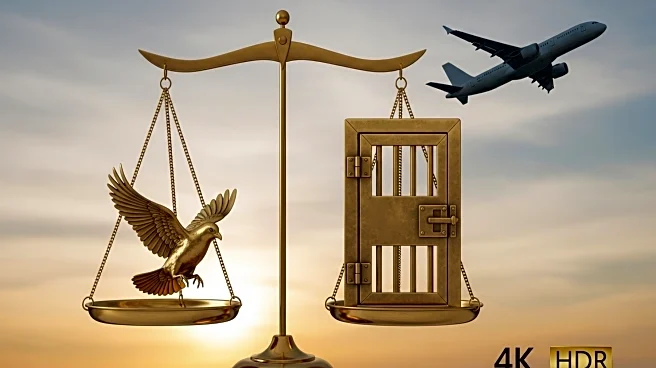What is the story about?
What's Happening?
Belarus has released 52 political prisoners, coinciding with the U.S. decision to lift certain sanctions on the country's national airline, Belavia. This development follows Belarusian President Alexander Lukashenko's ongoing efforts to improve relations with Western nations amid international isolation due to human rights violations and support for Russia's actions in Ukraine. The release includes prominent dissidents and foreign nationals, marking a significant diplomatic gesture. The U.S. concession allows Belavia to service and purchase parts for its aircraft, including Boeing models, potentially easing the airline's operational challenges.
Why It's Important?
The release of political prisoners and the easing of sanctions represent a strategic move by Belarus to alleviate international pressure and improve its global standing. For the U.S., this action could foster diplomatic engagement and potentially influence Belarus's domestic policies. However, critics warn that lifting sanctions without substantial reforms may enable Belarus and Russia to bypass existing restrictions. The development highlights the complex interplay between human rights advocacy and geopolitical strategy, with implications for regional stability and international relations.
What's Next?
Belarus may continue to release prisoners as part of its strategy to gain favor with Western nations. The U.S. and other countries will likely monitor Belarus's actions closely, assessing whether further diplomatic engagement or sanctions adjustments are warranted. The situation could influence broader geopolitical dynamics, particularly in relation to Russia's military activities and regional security concerns. Stakeholders, including human rights organizations and political leaders, will likely advocate for continued pressure on Belarus to enact meaningful reforms.















